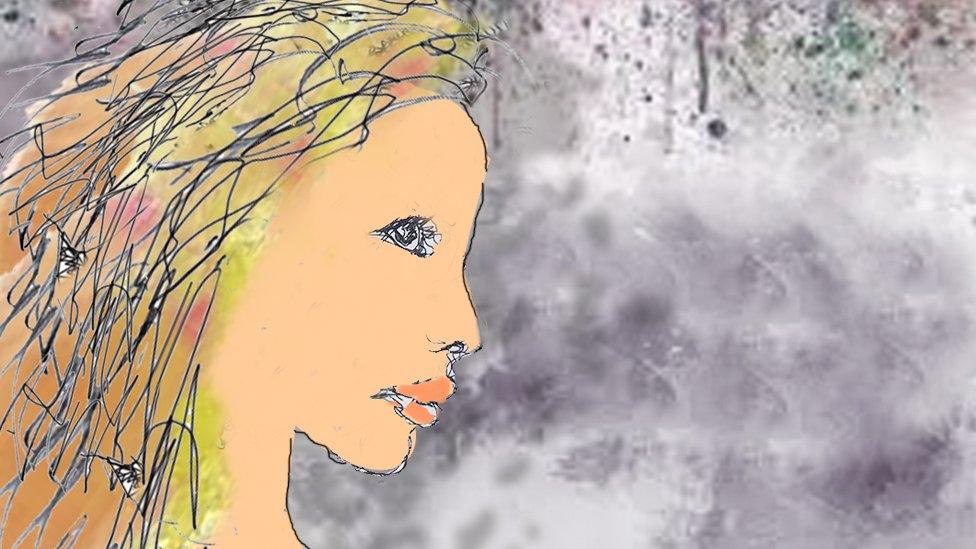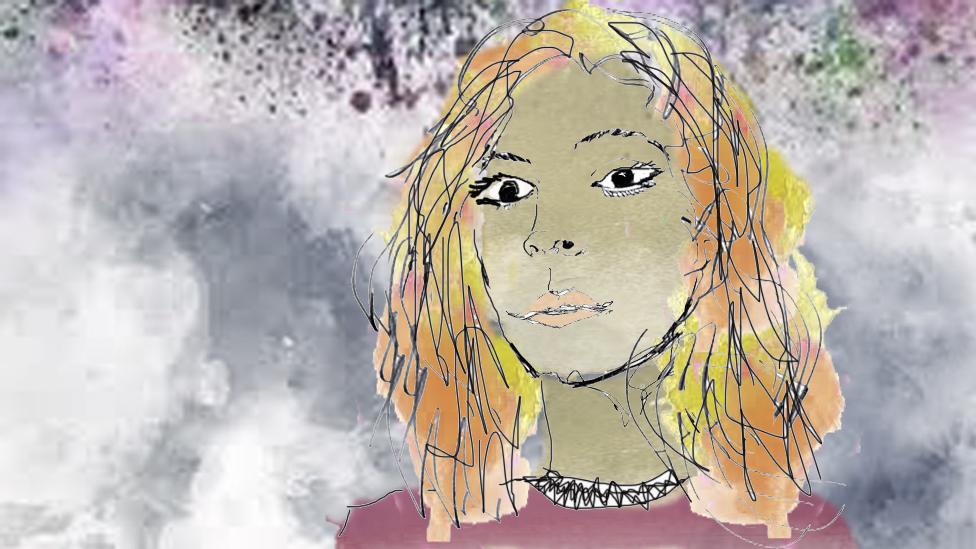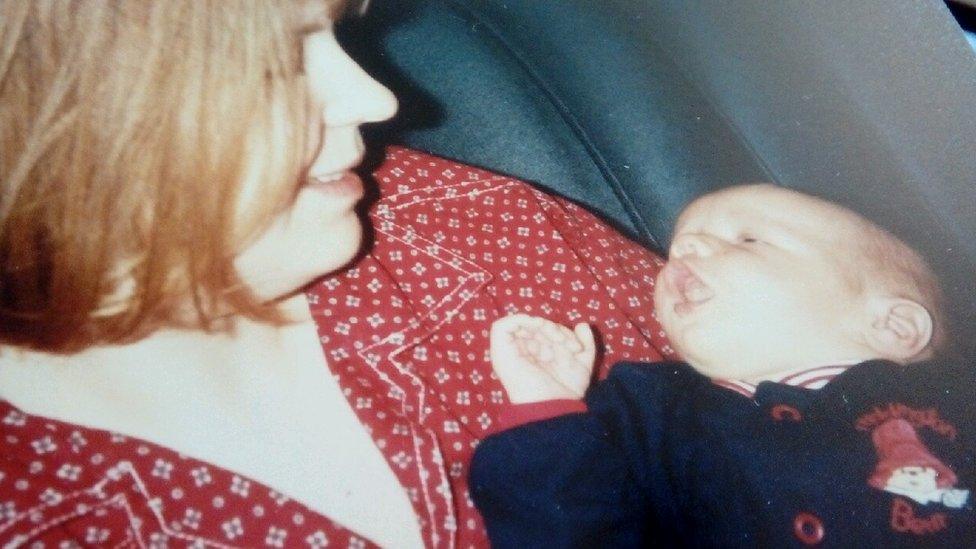Mental health: 'If I had not been sectioned, I'd be dead'
- Published

About 9,000 people in Wales were admitted to mental health facilities in the last year. Just under 2,000 of those were formally admitted or 'sectioned'.
Non McCarthy from Cwmbran, Torfaen has been sectioned twice in the past 15 years. Here the 40-year-old tells her story.
Non McCarthy's first contact with mental health services came as a teenager when she had an eating disorder.
Her anxiety saw her turn to alcohol, before she was diagnosed with a form of personality disorder, external and then bipolar disorder., external
Then she began to hear voices.
"When I was suffering from psychosis, I believed the government were aliens and had put a tracking chip in my head and were reading my thoughts," she said.
"I know it sounds funny, but I 100% believed it.
"It was this particular episode that saw me sectioned under the Mental Health Act. I was a risk to myself. I was getting very strong suicidal thoughts and could hear voices in my head telling me to kill myself."
By speaking about her experience, Ms McCarthy said she hoped to "demystify" sectioning and break down stigma and taboos, including the term "sectioning, external" itself.
"A lot of people do not understand the term," she explained.
"It is actually a legal term and refers to a section or part of the Mental Health Act. It does not mean that you go into hospital and they section you off somewhere, or something like that. I think a lot of people who are simply unaware do think that."

Her experiences of being detained did not end with the first episode.
Despite being released she was still struggling with her mental health, and after attending hospital on a voluntary basis, doctors decided it was in her best interests to keep her there.
To be sectioned, two doctors and an approved mental health professional make the decision to detain the patient.
She said her memories of that time are hazy, but she remembers key moments clearly enough.
"There is a meeting... They all have to agree that you're are not well and need to be detained, there are lots of legal forms which are filled in, your parent or guardian or someone close is in there with you and then that is it... you have been sectioned.
"You feel powerless, completely powerless. You cannot actually believe it, because you have done nothing wrong - you are just ill.
"You feel like a prisoner and I suppose that is the only other part of society where you could be locked up against your will.
"You feel fear that someone has got so much power over your life. They can detain you for anything up to six months and when you hear that you think to yourself: 'that is a long time'.
Ms McCarthy was sectioned for six months on both occasions.
She vividly remembers the sense of relief and "getting her freedom back" when she was released. The first thing she did was to spend time with her family and her pets.
She is still a mental health outpatient and sees a psychiatrist .
She said being sectioned had a big effect on her.
"At the time I did resent it," she said.
"I hated the doctors and I hated the psychiatrist and I felt that they were out to get me.
"But looking back I don't resent it anymore because I think I needed it.
"As my parents tell me: 'If you hadn't been sectioned you'd be dead.'
"And I would have been dead. I do believe that myself. I probably would have killed myself."
Details of organisations which offer advice and support are available on the BBC Action Line. You can call for free, at any time, to hear recorded information 0800 066 066.
- Published24 June 2018

- Published26 October 2017

- Published1 June 2018

- Published1 June 2018

- Published30 December 2017

- Published4 December 2018
